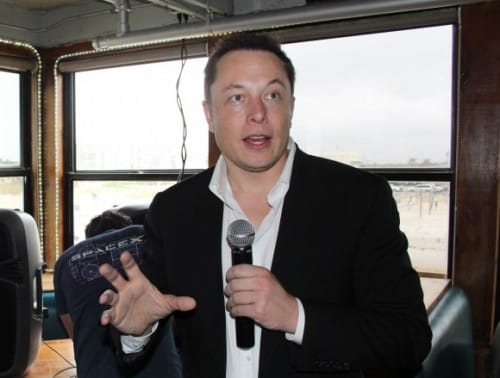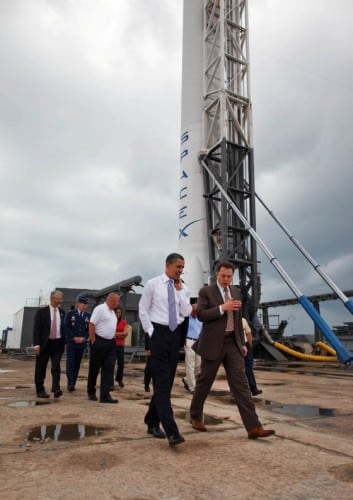The explosion of SpaceX's Falcon 9 launcher and the Amos 6 satellite comes just as the commercial space industry begins to boom.

The explosion of SpaceX's Falcon 9 launcher and the Amos 6 satellite comes just as the commercial space industry begins to boom.
Networks of hundreds or even thousands of small satellites are planned for launch in the coming years. New tiny satellite operators pop up every few weeks. The launch schedule of SpaceX and its major competitors is full until the end of 2016 and beyond. SpaceX itself has already completed eight launches this year and has planned nine more in the coming months.
SpaceX will be forced to postpone the next launches until the root cause of the failure at Cape Canaveral at SpaceX's Launch Complex 40 is investigated, but analysts interviewed by the "Los Angeles Times" say that this temporary stop will not have an effect on the momentum of the developing industry nor on the company itself.
One of them, Phil Smith, says that the fact that the incident took place on the ground, during the preparations for the launch and not during the launch itself, may facilitate the investigation and shorten the suspension time. This is a less complicated investigation than an in-flight explosion like the one that happened when the Falcon launcher disintegrated on June 9, 2015, a few minutes after launch.
"Every day that the satellite sits in the warehouse, revenue is lost," said Marco Xares, a senior space analyst at the Teal Group. According to him, because SpaceX offers lower prices than its competitors - when the starting price for a Falcon 9 launch is $62 million, companies will not run away from launch suppliers others, said Xares.
One of the upcoming launches is of ten new generation Iridium satellites aboard the Falcon 9 launcher from Vandenberg Air Force Base in California towards the end of September, the first of seven launches designed to replace all 66 low-orbit Iridium communications satellites currently in operation. While other companies can be patient, Iridium and NASA have a tight schedule.

According to Xeres, with such a tight launch schedule, . If other failures occur within a short period of time, SpaceX could start to lose customers, "They just can't afford to take shortcuts," Xares said.
In any case, NASA calmed down and on its Twitter account, the agency published that it is too early to assess whether the malfunction will have an impact on the planned SpaceX launches for NASA, mainly cargo launches to the International Space Station, not to mention the expected manned launches of astronauts to the station in the coming years International space also for NASA.
Of course, it is still too early to know what will happen to Musk's plan to reach Mars in the middle of the next decade in a manned flight and get ahead of NASA.
SpaceX is not the only problem at the moment for the entrepreneur Elon Musk, who is also the owner of the electric car company and in the future also the autonomous Tesla. As I recall, in May of this year, the first accident in history happened to a car in autonomous driving mode. Tesla blamed the failure on the supplier of the artificial vision system - the Israeli company Mobileye. The malfunction occurred when a trailer that emerged from the side hit the cars, and the sensors were not prepared for such an impact. These days, Tesla was supposed to announce an enhanced system of cameras, sensors and software (this time no longer made by Mobileye), but this announcement will have to be postponed.
In general, the last year and a half have been the most difficult in Musk's history, when despite this he still shows success rates of 83% in SpaceX flights. As mentioned, he has to do everything so that no more failures happen, even if the price is a slowdown in the crazy pace of launches.
More of the topic in Hayadan:
- Communication Space: Losing Amos 6 has a material impact on society; Facebook: We will have to do without satellite for now
- The Aerospace Industry: We will be at the disposal of a communications space company * We hope that the state will act for the preservation of knowledge
- SpaceX first response: the explosion of the Falcon 9 and Amos 6 happened due to an anomaly in the launch pad, and not in the rocket itself

3 תגובות
Listen, in my opinion, anyone who plans long-term plans in the field of space and satellites without taking into account that some of the tools will be destroyed or disassembled on their way to orbit is simply naive, it is enough to read the news from time to time to understand how explosive and full of risks this business is.
And I don't think the cost of a satellite destroyed in an explosion is worth the cost of a train breakdown.
Rival, how many times have train breakdowns happened? And what 200000 people did not take that into account this morning?
I don't understand, the people who are in this business are not aware of the dangers in the space business? Is this the first time a missile or satellite explodes on the launch pad or during takeoff?
Who in this business does not take such things into account?